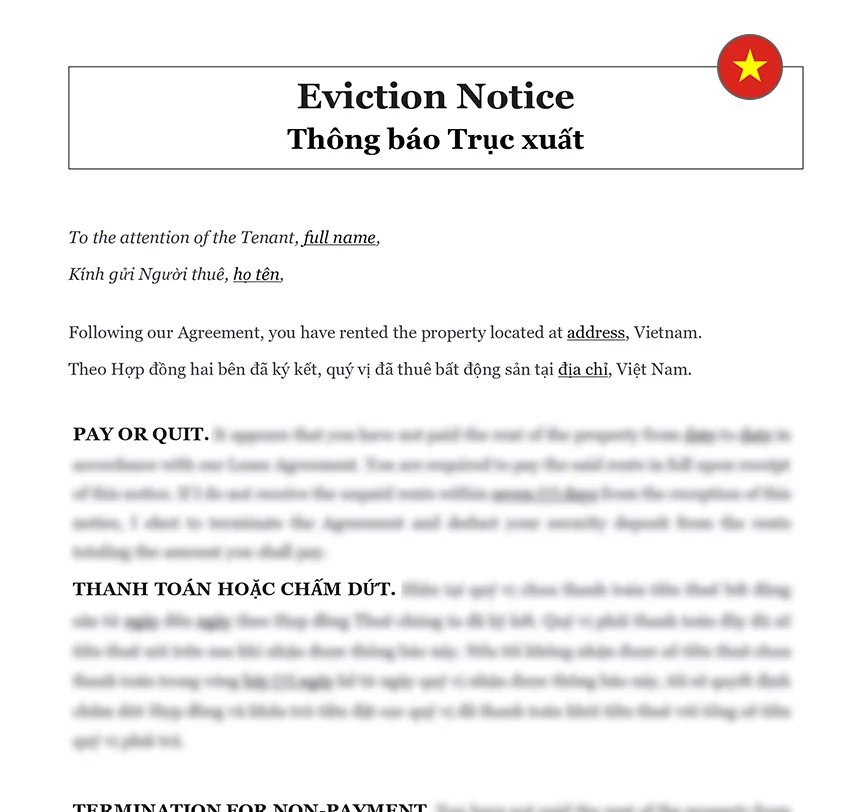Understanding the Legal Grounds to Terminate a Lease
To legally terminate a lease in Vietnam, you must first establish valid grounds. Common reasons include non-payment of rent, breach of lease terms, and illegal activities on the property. Non-payment of rent is one of the most straightforward grounds, but it must be well-documented with payment records and consistent follow-ups. Review How to Document Rent Payments Properly in Vietnam for record-keeping. Breach of lease terms can cover a wide range of issues such as unauthorized subletting, property damage, or engaging in activities prohibited by the lease. Illegal activities on the property, such as drug use or other criminal behavior, provide clear grounds for termination but require evidence, possibly from law enforcement. Vietnamese law supports these grounds, but they must be clearly documented and communicated to avoid potential disputes.
Issuing an Eviction Notice
1. Prepare the Notice: Draft the Eviction Notice, clearly detailing the reasons for eviction, such as breaches of lease terms or non-payment of rent.
ℹ️ Use our Lease Termination Letter Template for formalizing terminations.
2. Specify the Breach: Include the exact breach or issue that justifies the eviction, referring to the specific clauses in the lease agreement.
3. Provide a Timeframe: Outline a reasonable timeframe for the tenant to vacate the premises, in accordance with legal requirements and lease terms.
4. Include Actionable Details: Specify the actions the tenant must take and the deadlines for these actions to ensure clarity and compliance.
5. Deliver the Notice: Serve the Eviction Notice to the tenant in a manner that ensures receipt, such as through registered mail or personal delivery.
6. Document the Process: Keep a formal record of the issuance and delivery of the notice, as this may be required in future legal proceedings.
7. Follow-Up: Monitor the tenant’s response to the notice and prepare for any necessary legal actions if the tenant fails to comply.
Required Documentation to Terminate a Lease
Proper documentation is essential when seeking to terminate a lease. The following documents are critical:
| ➤ Eviction Notice: Formal notice to the tenant about the lease termination, detailing reasons and providing a deadline for vacating the premises. |
| ➤ Lease Agreement: The original signed lease agreement outlining the terms and conditions of the tenancy, which serves as the foundational document in any legal process. |
| ➤ Payment Records: Proof of rent payments or non-payment records, showing a clear history of the tenant's payment behavior or lack thereof. Read How to Document Rent Payments Properly in Vietnam for record-keeping. |
| ➤ Communication Logs: Records of all communications between the landlord and tenant, including emails, letters, and messages, to demonstrate efforts to resolve issues amicably before seeking termination. |











